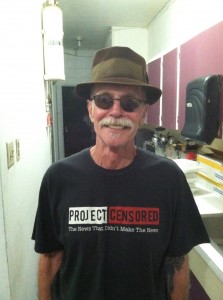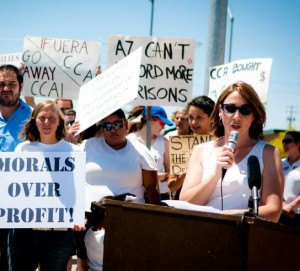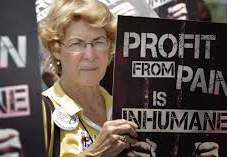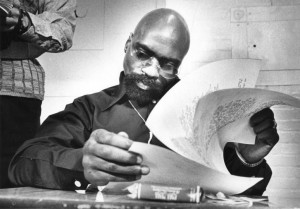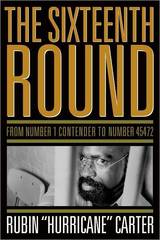Podcast: Play in new window | Download
Updates:
- John Kerry Middle East Peace Talks And NY Times Propaganda
- There is no ‘Palestine Exception’ to free speech rights’: Northeastern overturns Students for Justice in Palestine suspension
- CCR: Palestine Solidarity Legal Support Project
- Host Attorney Micheal Smith Retraction On Abe Foxman Update
——
Torturous For-Profit Medical Care in Prisons
The medical care in private prisons is often provided by a sub contracted for profit entity. Today we look at a specific case involving Corizon, a prison health management corporation serving 530 prisons in 28 states. Corizon has been sued for malpractice 660 times in the past five years. We talk today about “Bradley’s” case. He’s 67, and was out on parole after serving 34 years in California’s state prisons. Bradley was on 100mg of morphine 3 times a day for surgical complications from knee injury. While on parole, THC was detected in his system, and officers brought him back to prison. However, under the care of Corizon, he was not given his medication and forced to painfully withdraw from the morphine.
- My brother who we call Brad is at Santa Rita jail who Corizon is under contract with.
- He went in on April 17, and after a week of being in there, my lawyer and my sister said he was on death’s door.
- The reason was he was being forced to withdraw from medications. His medications are morphine and high blood pressure medication.
- He was given no medications for pain, and he basically did cold turkey inside that jail and is still being mistreated there.
- This is a parole violation where its alleged he might have smoked some pot.
- He was in San Quentin and some other California prisons. He served 34 years. When he was finally paroled one of the parole board members said – well we assess that the crime that you did to be about 11 years.
- Just the thought of him in that jail without medication for that time, it was agony.
- What the jail has told me is they don’t give out controlled substances.
- What my lawyer said is their policy to save money, they don’t have proper medication.
- They’re putting him through a forced cold turkey withdrawal and laughing at him.
- They keep using the word protocol, and it rings in my ear. Oh, he’s on a withdrawal protocol. One wonders what that protocol might be.
- I’ve been asking people to call the jail. It’s very interesting, they thrive in secrecy and brutality within these places.
- Call the Santa Rita County Jail – 925-551-6500. Lawrence (Bradley) Benetto – Prisoner # BKB172
Guest – Dr. Robin Andersen, is the brother of “Bradley” and Professor of Communication and Media Studies and Director of the M.A. Program in Public Communication. She is also Director of the Peace and Justice Studies Program at Fordham University.
——–
Lawsuits Against Prison Health Management Corporations
Class action lawsuits against prison health management corporations are becoming very common. There are many cases and stories of mistreatment and negligence which critics say stem from profit making and cost cutting protocols. We take a deeper look at the recent litigation involving lawsuits against private, for profit prison health care companies.
- Corizon, they’re a multi-billion dollar company. They’ve operated under many names throughout the years.
- They’re whole model is to provide as little health care as possible in order to continue to drive a profit. They take into account in their profit, how often they’re going to be sued.
- They gamble in effect on how much money they’re going to lose in lawsuits and whether that can keep them profitable by continuing to deny care to prisoners.
- When Corizon contracted with Arizona to provide care (in prisons) in the first 8 months there were 50 deaths in Arizona Department of Corrections in their custody, that’s in a single state.
- There are multiple stories of substandard care being provided by nurses and doctors who have not been trained, who have been trained at a suboptimal level.
- The states, county or municipality cannot contract away the 8th Amendment.
- The individual doctors get bonuses based on their ability to stay under budget.
Guest – Attorney Sarah Grady leads Loevy & Loevy’s Prisoners’ Rights Project. Ms. Grady graduated cum laude from Northwestern University School of Law in 2012. At Northwestern, she worked on civil rights cases with the Roderick and Solange MacArthur Justice Center in the Bluhm Legal Clinic.
Sarah Grady joined Loevy & Loevy in 2013. She leads Loevy & Loevy’s Prisoners’ Rights Project.
Ms. Grady graduated cum laude from Northwestern University School of Law in 2012. At Northwestern, she worked on civil rights cases with the Roderick and Solange MacArthur Justice Center in the Bluhm Legal Clinic, served on the board of the Public Interest Law Group and the American Constitution Society, and received Northwestern’s annual Public Service Award for her commitment to serving the public interest in her legal work.
– See more at: http://www.loevy.com/attorneys/sarah-grady/#sthash.M7ruq9uH.dpuf
Sarah Grady joined Loevy & Loevy in 2013. She leads Loevy & Loevy’s Prisoners’ Rights Project.
Ms. Grady graduated cum laude from Northwestern University School of Law in 2012. At Northwestern, she worked on civil rights cases with the Roderick and Solange MacArthur Justice Center in the Bluhm Legal Clinic, served on the board of the Public Interest Law Group and the American Constitution Society, and received Northwestern’s annual Public Service Award for her commitment to serving the public interest in her legal work.
– See more at: http://www.loevy.com/attorneys/sarah-grady/#sthash.M7ruq9uH.dpuf
Sarah Grady joined Loevy & Loevy in 2013. She leads Loevy & Loevy’s Prisoners’ Rights Project.
Ms. Grady graduated cum laude from Northwestern University School of Law in 2012. At Northwestern, she worked on civil rights cases with the Roderick and Solange MacArthur Justice Center in the Bluhm Legal Clinic, served on the board of the Public Interest Law Group and the American Constitution Society, and received Northwestern’s annual Public Service Award for her commitment to serving the public interest in her legal work.
– See more at: http://www.loevy.com/attorneys/sarah-grady/#sthash.M7ruq9uH.dpuf
Sarah Grady joined Loevy & Loevy in 2013. She leads Loevy & Loevy’s Prisoners’ Rights Project.
Ms. Grady graduated cum laude from Northwestern University School of Law in 2012. At Northwestern, she worked on civil rights cases with the Roderick and Solange MacArthur Justice Center in the Bluhm Legal Clinic, served on the board of the Public Interest Law Group and the American Constitution Society, and received Northwestern’s annual Public Service Award for her commitment to serving the public interest in her legal work.
– See more at: http://www.loevy.com/attorneys/sarah-grady/#sthash.M7ruq9uH.dpuf
——–
- We a broad spectrum of issues both in terms of types of facilities where these things are occurring and the actual kinds of medical problems that are not being dealt with or ignored.
- There are states, counties and municipalities all engaged in this form of privatization which are outsourcing medical care to these private companies.
- It includes, large prisons people who are convicted of crimes, it includes people who are being held in custody, that includes county jails which are a hybrid facility that holding people long term and people in short term custody.
- It’s everything down to the local police station.
- We’re seeing a lack of adequate medical care across that entire spectrum.
- There’s a complete failure to treat chronic conditions, some of the chronic conditions that are so prevalent in our society now.
- These people (prisoners) are not consumers and cannot choose and say I find your product subpar, I’m not interested, I’m going to choose the other guys’ product.
- We’re starting to see a push back. Courts are starting to attack specific protections that companies are invoking.
- Here you have courts identifying market forces as a reason to deny the protections that some of these companies are trying to invoke.
Guest – Attorney Anand Swaminathan, has worked on a broad range of constitutional and civil rights cases, and has worked extensively on False Claims Act litigation, where he has represented whistleblowers alleging defense military and other government contractor fraud, bid-rigging, Medicare and Medicaid fraud, construction/contractor (MBE/DBE) fraud, and tax fraud.
———
Rubin “Hurricane” Carter 1937-2014
In April of this year, celebrated boxer and prisoner-rights activist Rubin “Hurricane” Carter died at the age of 76. He had become an international symbol of racial injustice after his wrongful murder conviction forced him to spend 19 years in prison. Carter was arrested for a triple murder in his hometown of Paterson, New Jersey. He said he was innocent, was convicted by an all white jury, and sentenced to three consecutive life sentences. In 1976, the New Jersey State Supreme Court overturned his conviction on grounds the authorities withheld material evidence from the defense. But Carter was convicted again in a second trial in 1976. In 1985, that conviction was overturned by a U.S. district court judge, who concluded the state made an unconstitutional appeal to racial prejudice. In 1988, the Passaic, New Jersey, Prosecutor’s Office dropped all charges against Carter.
- He was a defendant in a criminal case in New Jersey involved the triple shooting and three murders of 3 people in the Lafayette bar in Patterson, New Jersey.
- He and his co-defendant John Artis were represented at the first trial and they lost, (convicted) and Rubin started his campaign to get out of jail and wrote his book the 16th Round.
- He was charismatic and powerful, a great thinker, very very intellectually strong person as well as being spiritually strong.
- Almost a typical case, high profile case, where you get people who are vulnerable and easily manipulated because of their need for their own benefits to falsely testify.
- We set aside the convictions when we learned about the benefits that were given to the witnesses.
- We went again to trial in 1975. At that time the atmosphere had changed. There was a new prosecutor, they came up with a theory that it was actually a racial revenge killing.
- Earlier that night, a white former bar owner had shot and killed the black purchaser of the bar from him.
- That was always known and there was no motives attributed to the killings in the first trial but the second trial really based on speculation and bias, they argued persuasively to the jury that this was a racial revenge killing.
- Mr. Bellow who was the supposed eye witness who testified, there were two of them in the first trial, was being questioned by me on the stand as to why he recanted his recantation. The prosecutor persuaded him to again tell the story he told at the first trial, identifying Rubin and John and I was trying to establish that they had falsely manipulated him when I was pulled into the chambers along with my co-counsel Louis Steele who represented John Artis and told that if I question him further, the jury would learn that he passed the lie detector test, supporting what he said at the first trial. Supporting his identification (of Rubin Carter)
- We did have that test. It seemed like that was the result because that’s the way it was written. In fact that was a fraud.
- The polygraph results were completely opposite of what they were purported to be.
- The prosecutors in that case, two of them became judges, rewarded for what they did.
- Rubin was not a popular person, he had been an outspoken civil rights person. It was a cesspool of rumors without any evidentiary basis.
- The entire community there almost in Passaic New Jersey treated us like we were the devil.
- It was the coldest community reception I ever encountered in any place.
- Rubin would call every year (from Canada) on the anniversary of his release. He got a group of Canadian do-gooders and free thinkers to join him in fighting to set aside convictions for people who were wrongly convicted in Canada.
- He would vet the briefs that we sent. He was a very unusual client.
- Rubin refused to act as a prisoner because he wasn’t anyone who was guilty he said.
- So, he didn’t eat prison food, he didn’t take prisoner assignments, he didn’t wear prison clothes and somehow or other he was able to pull that off.
- People think of it as being another time, I’ve been practicing law long enough and I don’t think anything changes.
- The same kind of bias runs deep throughout the community its just masked somewhat differently.
- You make your luck in these cases, you have to forge ahead.
- His insistence on being an innocent person and will not compromise with the system is the kind of inspiration that pushes us on as lawyers.
Guest – Attorney Myron Beldock, graduated from Erasmus Hall High School in 1946, Hamilton College in 1950 and Harvard Law School in 1958. He served in the U.S. Army from 1951 to 1954 and as an Assistant U.S. Attorney in the Eastern District of New York from 1958 to 1960. After several years as an associate with a small New York City firm and as a single practitioner, he brought together two friends and former Assistant U.S. Attorneys, Elliot Hoffman and Larry Levine, to form Beldock Levine & Hoffman in 1964. He is best described, by his own definition, as an old-time general practitioner. He concentrates on trial and appellate litigation, in state and federal courts, in defense of criminal charges and in pursuing plaintiffs’ civil rights actions based on police and prosecutorial misconduct and employer and governmental discrimination. He regularly consults and defends charges of professional discipline. He represents plaintiffs and defendants in a wide variety of personal and business related matters, working with others in the firm’s various practice areas.
Please help support Law and Disorder, the show is now a sponsored project of Fractured Atlas, a non-profit arts service organization. Contributions for the charitable purposes of Law and Disorder must be made payable to Fractured Atlas only and are tax-deductible to the extent permitted by law.
